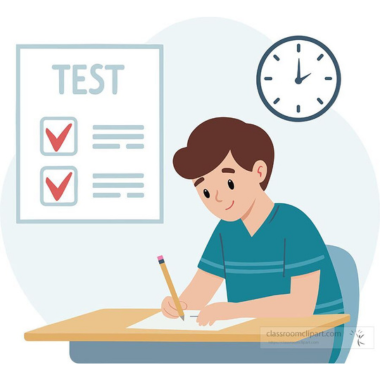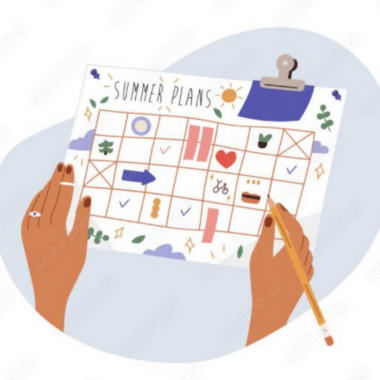A Student's Guide to Letters of Recommendation
Written by: Bella Livingston, Pre-Health Peer Advisor
What are letters of recommendation?
Letters of recommendation (in the context of applying to a professional school) are letters written by other people, which support your application. They’re written by your professors and people that know you best (coaches, bosses, and any other professional that you’ve developed a relationship with). Admissions committees use them to learn about you as a student, but also to learn about your personal qualities (the transcript can tell them how you are as a student). Recommenders may highlight your intellectual curiosity, energy, relationships with peers, and impact on the classroom/work environment. It is important to ask for recommendations from people who know you well or people willing to get to know you.
Who do I need to ask?
Schools have varying requirements for recommendation letters, which can range from 2-5 letters (so be sure to research your specific schools of interest!)
The most commonly requested number of recommendation letters is three. When applying to most schools, you will need the following three individual letters:
- Two letters from science professors
- One letter from a non-science professor or other professional
In order to cover all possibilities, especially when you aren't yet sure where you want to apply, we recommend asking for letters from the following people:
- 2 science faculty members who have taught you in a class
- 1 non-science faculty member who has taught you in a class
- 1 professional in your desired career field
- 1-2 additional letters from individuals who can speak to your qualifications based on work, volunteer, or research experiences (managers/bosses, faculty, etc.)
How do I send my letters?
Schools will require you to connect your letters directly to your primary application (AMCAS, AACOMAS, AADSAS, CASPA, PharmCAS, PTCAS, OTCAS, or OptomCAS). This is done by entering the names and contact information of the people that will evaluate you on your application. An email will then be sent to them and the status of their upload will be updated on your application.
Some schools will give the option of a letter packet or committee letter instead of individual letters. MSU does not send letter packets or committee letters. This will not affect your application or ability to get accepted, you simply will submit individual letters instead.
Interfolio, Inc. is also a great option to collect all of your letters confidentially. Have your writers send their letters to this credential file only if you want them collected before the application opens for the cycle when you’re applying (otherwise you can just wait until you can access the application, which will not hinder your potential admission).
Where do I find someone to write a letter for me?
If you have any smaller class sizes, start there, as your professors are more likely to know your face and have some familiarity with your work.
- Do: Choose a professor that you have rapport with, or who is involved in some way outside the classroom (perhaps they are involved in research or they interact with you while you assist in teaching).
- Don’t: Choose a professor just because you aced their class. If the professor doesn’t have anything interesting to say about you, even though you did well in their class, it would be better if you picked another option as the letter may come off as superficial or lacking the intended context (more info about who YOU are).
- Go to office hours, ask professors about their academic history and develop a conversation where you can discuss their experience in school while sharing your goals. Give them unofficial transcripts, bullet points about your experience and extracurriculars, and more bullet points about what you want to do and why.
Go to a manager or advisor for a job/research/activity you’ve participated in recently over the years.
- Normally these writers will have a lot to say about you as you may have spent a lot of time interacting with them on a weekly basis.
Shadow a professional and gain rapport with them.
- Many health professionals are open to writing letters of rec if approached respectfully and given time. Even after only 2-3 meetings (depending on the length of time and amount of conversation) a person may be willing to write about you if given the opportunity.
What will make my letters of recommendation strong?
When you ask a person to write for you be sure you:
- Write an email/letter explaining what program you’re applying to, why you’re
applying to it, and why you’re asking them specifically for the reference (maybe
include something you learned in their class, something you aspire to do
professionally based on their career, etc.). - Include an updated resume to give the writers more source material.
- What is unique about you as a person/candidate?
- Make the material you give them succinct, focus on specific areas of your background that you want them to include in your letters, and be accurate.
If you're asking a professor, keep in mind that:
- Faculty want to help but are spread thin, so use their time meaningfully. Every faculty member who teaches has office hours, and very few students show up, which is why this is a great time to talk.
- * I know personally how awkward a conversation about a letter of rec can be. Many professors or professionals get asked for several letters each semester and they’re used to students popping the question (the best you can do is ask and then move on if they aren’t comfortable or able to write for you).*
Okay, I asked for a rec and they said yes. Now what?
- Let your recommenders know what schools you are applying to, as well as the earliest deadline.
- Follow up with your recommender as the deadline gets closer. Ideally, your recommender will get it in before the deadline, but following up ensures that you don’t stress if they submit it the day of or even later than you wanted.
For more information
The pre-health website has a section related to letters of evaluation (you can also make an individual appointment with a pre-health advisor).
The AAMC Guidelines for Letter Writers is a great resource to send to potential writers.
- This document also includes core competencies that schools are looking for in applicants. To form a more convincing email/request for a recommendation letter you can explain how you think the class or work you’ve been doing has helped develop one or multiple of these competencies. Try brainstorming which ones you feel confident in and you can explain to a professor how their class helped you grow.



